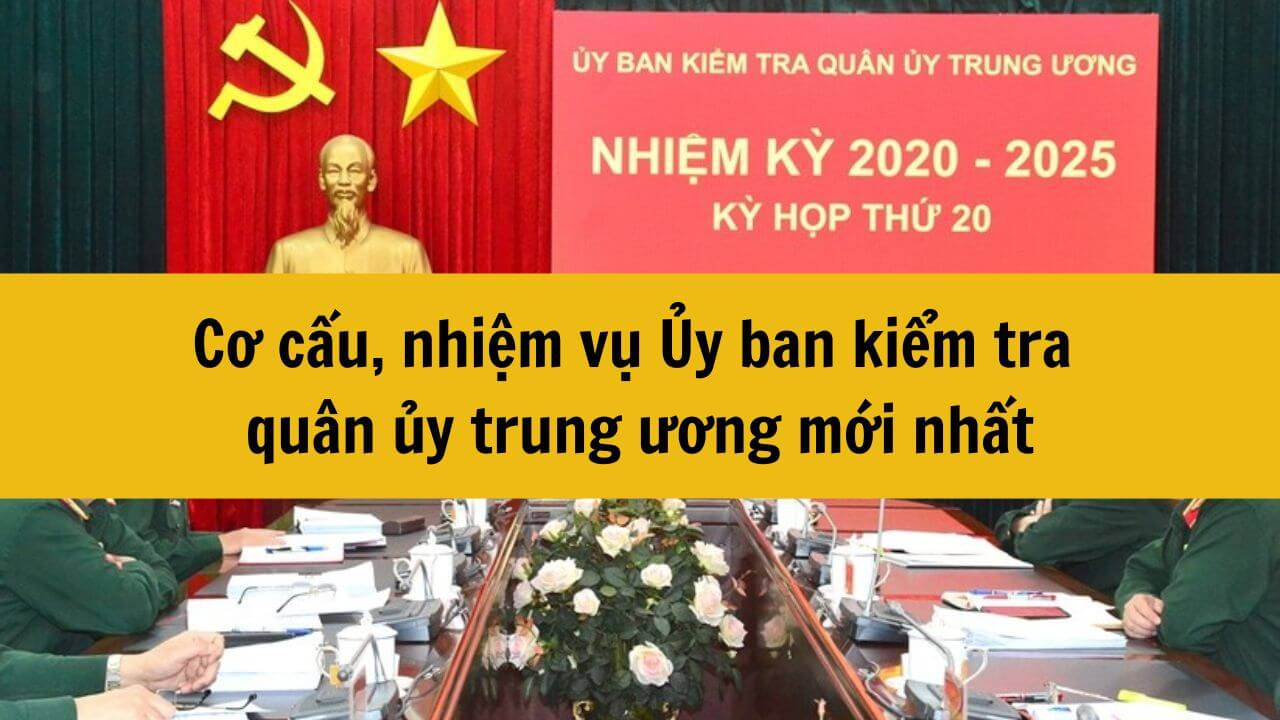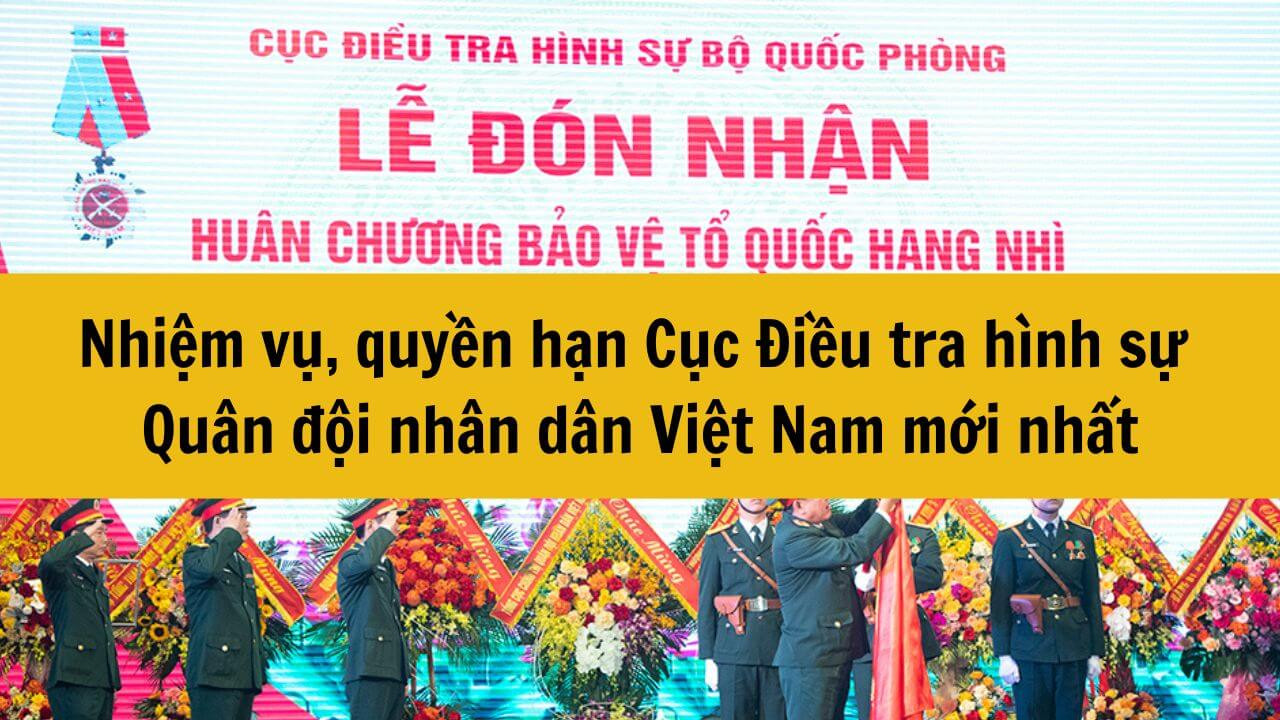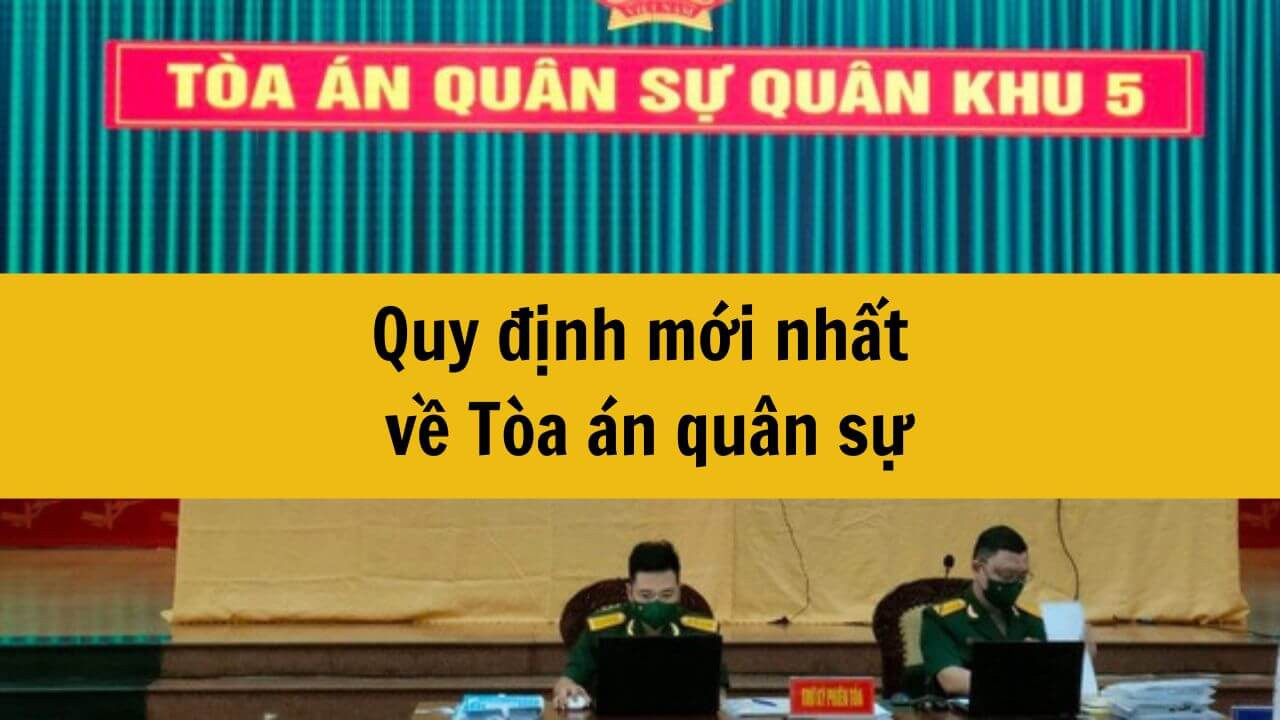 Tìm kiếm
Tìm kiếm
Chương VI Luật Tổ chức cơ quan điều tra hình sự 2015: Quan hệ phân công và phối hợp trong hoạt động điều tra hình sự
| Số hiệu: | 99/2015/QH13 | Loại văn bản: | Luật |
| Nơi ban hành: | Quốc hội | Người ký: | Nguyễn Sinh Hùng |
| Ngày ban hành: | 26/11/2015 | Ngày hiệu lực: | 01/01/2018 |
| Ngày công báo: | 31/12/2015 | Số công báo: | Từ số 1263 đến số 1264 |
| Lĩnh vực: | Trách nhiệm hình sự | Tình trạng: | Còn hiệu lực |
TÓM TẮT VĂN BẢN
Văn bản tiếng việt
Văn bản tiếng anh
1. Quan hệ giữa các cơ quan Điều tra, giữa Cơ quan Điều tra với cơ quan được giao nhiệm vụ tiến hành một số hoạt động Điều tra, giữa các cơ quan được giao nhiệm vụ tiến hành một số hoạt động Điều tra là quan hệ phân công và phối hợp.
2. Cơ quan Điều tra có trách nhiệm hướng dẫn, chỉ đạo nghiệp vụ điều tra đối với cơ quan được giao nhiệm vụ tiến hành một số hoạt động Điều tra. Cơ quan được giao nhiệm vụ tiến hành một số hoạt động Điều tra phải thực hiện yêu cầu bằng văn bản của Cơ quan Điều tra.
3. Cơ quan Điều tra có trách nhiệm tiếp nhận hồ sơ vụ án do cơ quan được giao nhiệm vụ tiến hành một số hoạt động Điều tra chuyển giao theo thẩm quyền và thông báo kết quả giải quyết cho cơ quan đã chuyển giao hồ sơ vụ án.
4. Đối với sự việc có dấu hiệu phạm tội mà chưa xác định rõ thẩm quyền Điều tra thì Cơ quan Điều tra nào phát hiện trước phải áp dụng ngay các hoạt động Điều tra theo quy định của Bộ luật tố tụng hình sự và Luật này; khi đã xác định được thẩm quyền Điều tra thì chuyển vụ án cho Cơ quan Điều tra có thẩm quyền theo quy định của Bộ luật tố tụng hình sự.
5. Cơ quan được giao nhiệm vụ tiến hành một số hoạt động Điều tra sau khi khởi tố vụ án hình sự, áp dụng biện pháp ngăn chặn theo thẩm quyền phải gửi ngay các quyết định đó cho Viện kiểm sát và thông báo cho Cơ quan Điều tra có thẩm quyền biết.
6. Các đơn vị Cảnh sát nhân dân, An ninh nhân dân, Kiểm soát quân sự có trách nhiệm hỗ trợ và thực hiện yêu cầu của Thủ trưởng, Phó Thủ trưởng Cơ quan Điều tra, Điều tra viên và của Thủ trưởng, Phó Thủ trưởng cơ quan được giao nhiệm vụ tiến hành một số hoạt động Điều tra trong hoạt động Điều tra.
Khi cần thiết, Cơ quan Điều tra có thể uỷ thác cho Cơ quan Điều tra khác tiến hành một số hoạt động Điều tra. Quyết định uỷ thác phải ghi rõ yêu cầu cụ thể. Cơ quan Điều tra được uỷ thác có trách nhiệm thực hiện đầy đủ những việc được uỷ thác theo thời hạn mà Cơ quan Điều tra uỷ thác yêu cầu.
Trong trường hợp Cơ quan Điều tra được uỷ thác không thể thực hiện được từng phần hoặc toàn bộ những việc uỷ thác thì phải thông báo ngay bằng văn bản và nêu rõ lý do cho Cơ quan Điều tra đã uỷ thác biết.
1. Quan hệ giữa đơn vị Điều tra và đơn vị trinh sát là quan hệ phối hợp, hỗ trợ trong phát hiện, ngăn chặn, Điều tra, xử lý và phòng ngừa tội phạm.
2. Trong quan hệ với đơn vị Điều tra, đơn vị trinh sát có trách nhiệm sau đây:
a) Áp dụng các biện pháp cần thiết theo quy định của pháp luật để phát hiện hành vi vi phạm pháp luật và cung cấp thông tin cho đơn vị Điều tra để Điều tra, xử lý;
b) Áp dụng biện pháp nghiệp vụ để hỗ trợ đơn vị Điều tra tiến hành hoạt động điều tra, thu thập tài liệu, chứng cứ, ngăn chặn tội phạm và truy bắt người phạm tội;
c) Áp dụng các biện pháp cần thiết để phòng ngừa vi phạm pháp luật và tội phạm theo chức năng, nhiệm vụ, quyền hạn được giao;
d) Phát hiện sơ hở, thiếu sót trong quản lý nhà nước, quản lý xã hội, quản lý kinh tế để kiến nghị với cơ quan, tổ chức hữu quan có biện pháp khắc phục;
đ) Áp dụng các biện pháp cần thiết theo quy định của pháp luật để hạn chế, loại trừ nguyên nhân, Điều kiện làm phát sinh tội phạm, vi phạm pháp luật.
3. Trong quan hệ với đơn vị trinh sát, đơn vị điều tra có trách nhiệm sau đây:
a) Cung cấp thông tin về tội phạm và người phạm tội cho đơn vị trinh sát để thực hiện chức năng, nhiệm vụ theo quy định tại Khoản 2 Điều này;
b) Phối hợp với đơn vị trinh sát đánh giá, xác định những sơ hở, thiếu sót trong quản lý nhà nước, quản lý xã hội, quản lý kinh tế để kiến nghị với cơ quan, tổ chức hữu quan có biện pháp khắc phục;
c) Đánh giá nguyên nhân, điều kiện làm phát sinh tội phạm, phương thức, thủ đoạn phạm tội trong các vụ án hình sự để trao đổi, phối hợp với đơn vị trinh sát thực hiện công tác phòng ngừa, phát hiện tội phạm.
4. Thủ trưởng Cơ quan Điều tra quyết định việc áp dụng các biện pháp cần thiết trong phối hợp hoạt động giữa đơn vị Điều tra và đơn vị trinh sát trong Điều tra vụ án hình sự. Các biện pháp quy định tại Khoản 2 và Khoản 3 Điều này phải được giữ bí mật theo quy định của pháp luật về bảo vệ bí mật nhà nước.
Trong phạm vi nhiệm vụ, quyền hạn của mình, Thủ trưởng cơ quan Công an, Quân đội các cấp có liên quan đến tổ chức, hoạt động Điều tra hình sự có trách nhiệm sau đây:
1. Thực hiện đúng quy định của pháp luật để bảo đảm tính độc lập, khách quan trong quyết định, hành vi tố tụng của Điều tra viên và các chức danh khác trong hoạt động Điều tra hình sự;
2. Bảo đảm các Điều kiện cần thiết về nhân lực, cơ sở vật chất, kỹ thuật, trang thiết bị, kinh phí và Điều kiện cần thiết khác cho hoạt động Điều tra hình sự;
3. Chỉ đạo, tổ chức các lực lượng phối hợp, hỗ trợ cho hoạt động Điều tra hình sự;
4. Tiến hành các hoạt động, biện pháp theo quy định của Luật Công an nhân dân, Luật An ninh quốc gia và pháp luật khác có liên quan để thu thập thông tin, tài liệu cần thiết hỗ trợ cho hoạt động Điều tra hình sự;
5. Tổ chức lực lượng hỗ trợ các cơ quan tiến hành tố tụng trong áp dụng các biện pháp ngăn chặn, thu thập chứng cứ và bảo vệ các hoạt động tố tụng hình sự;
6. Tiến hành các biện pháp theo quy định của pháp luật để ngăn ngừa các hành vi cản trở, làm sai lệch kết quả Điều tra, xử lý vụ án hình sự.
1. Công an xã có trách nhiệm tiếp nhận tố giác, tin báo về tội phạm, lập biên bản tiếp nhận, lấy lời khai ban đầu và chuyển ngay tố giác, tin báo về tội phạm kèm theo các tài liệu, đồ vật có liên quan cho Cơ quan Điều tra có thẩm quyền.
2. Công an phường, thị trấn, Đồn Công an có trách nhiệm tiếp nhận tố giác, tin báo về tội phạm, lập biên bản tiếp nhận, tiến hành kiểm tra, xác minh sơ bộ và chuyển ngay tố giác, tin báo về tội phạm kèm theo các tài liệu, đồ vật, có liên quan cho Cơ quan Điều tra có thẩm quyền.
3. Trường hợp Công an xã, phường, thị trấn, Đồn Công an phát hiện, bắt giữ, tiếp nhận người phạm tội quả tang, người đang bị truy nã thì thu giữ, tạm giữ vũ khí, hung khí và bảo quản tài liệu, đồ vật, có liên quan, lập biên bản bắt người, lấy lời khai ban đầu, bảo vệ hiện trường theo quy định của pháp luật; giải ngay người bị bắt lên cơ quan Công an cấp trên trực tiếp hoặc báo ngay cho Cơ quan Điều tra có thẩm quyền.
RELATIONS OF RESPONSIBILITY DIVISION AND COORDINATION IN CRIMINAL INVESTIGATION ACTIVITIES
Article 40. Relations between the investigating bodies and agencies tasked to conduct a number of investigating activities
1. The relations among the investigating bodies, between the investigating bodies and agencies tasked to conduct a number of investigating activities and among the agencies tasked to conduct a number of investigating activities are relations of responsibility division and coordination.
2. The investigating bodies shall guide and direct the investigating operation of the agencies tasked to conduct a number of investigating activities. The agencies tasked to conduct a number of investigating activities shall comply with written requests of the investigating bodies.
3. The investigating bodies shall receive case files transferred by the agencies tasked to conduct a number of investigating activities according to their competence and notify handling results to the agencies that have transferred the case files.
4. For matters showing criminal signs while the investigating jurisdiction is not yet clearly defined, the investigating body that detects them first shall immediately conduct investigating activities in accordance with the Criminal Procedure Code and this Law; when the investigating jurisdiction is defined, the case files shall be transferred to the competent investigating bodies in accordance with the Criminal Procedure Code.
5. The agencies tasked to conduct a number of investigating activities, after decide to institute criminal cases and apply deterrent measures according to their competence, shall immediately send their decisions to procuracies and notify them to competent investigating bodies.
6. The People’s Police, People’s Security and Military Surveillance units shall support and comply with requests of heads or deputy heads of investigating bodies, investigators and heads and deputy heads of the agencies tasked to conduct a number of investigating activities in their investigating activities.
Article 41. Mandated investigation
When necessary, an investigating body may mandate investigation to another investigating body. A mandate decision must clearly state specific requirements. The entrusted investigating bodies shall fully perform the mandated tasks within the time limits set by the mandating investigating bodies.
If the entrusted investigating bodies cannot partially or wholly perform the mandated tasks, they shall immediately notify such in writing to the mandating investigating bodies, clearly stating the reason.
Article 42. Relations between investigating units and reconnaissance units
1. Relations between investigating units and reconnaissance units are the relations of coordination and support in detecting, stopping, investigating, handling and preventing crimes.
2. In their relations with investigating units, reconnaissance units have the following responsibilities:
a/ To apply necessary measures prescribed by law to detect law violations and provide information to investigating units for investigation and handling;
b/ To apply professional measures to support investigating units in conducting investigating activities, collecting documents and evidences, stopping crimes and arresting offenders;
c/ To apply necessary measures to ward off law violations and crimes according to their assigned functions, tasks and powers;
d/ To detect loopholes and shortcomings in the state management, social management and economic management so as to request concerned agencies and organizations to apply remedies;
dd/ To apply necessary measures prescribed by law to limit or eliminate the causes of, and conditions giving rise to, crimes and law violations.
3. In their relations with reconnaissance units, investigating units have the following responsibilities:
a/ To provide information on crimes and offenders to reconnaissance units so as to perform the functions and tasks prescribed in Clause 2 of this Article;
b/ To coordinate with reconnaissance units in assessing and identifying the loopholes and shortcomings in the state management, social management and economic management so as to request concerned agencies or organizations to apply remedies;
c/ To assess causes of, and conditions giving rise to, crimes, modes and tricks in committing crimes in criminal cases for exchange of ideas and coordination with reconnaissance units in the crime prevention and detection.
4. Heads of investigating bodies shall decide to apply necessary measures in operational coordination between investigating units and reconnaissance units in investigating criminal cases. The measures prescribed in Clauses 2 and 3 of this Article must be kept secret in accordance with the law on protection of state secrets.
Article 43. Responsibilities of heads of public security and army offices at different levels for criminal investigation activities
Within the ambit of their respective tasks and powers, heads of public security and army offices at different levels involved in criminal investigation organization and activities have the following responsibilities:
1. To strictly comply with law in order to ensure the independence and objectiveness in procedural decisions and acts of investigators and other job titles in criminal investigation activities;
2. To provide necessary conditions regarding human resources, physical and technical foundations, equipment, funds and other necessary conditions for criminal investigation activities;
3. To direct and organize forces for coordinating and supporting criminal investigation activities;
4. To conduct activities and apply measures prescribed by the Law on People’s Public Security, Law on National Security and other relevant laws for collection of necessary information and documents in support of criminal investigation activities;
5. To organize forces to support procedure-conducting agencies in the application of deterrent measures, collection of evidences and protection of criminal procedure activities;
6. To apply measures prescribed by law in order to prevent acts obstructing, or falsifying results of, the investigation and handling of criminal cases.
Article 44. Responsibilities of public security offices of communes, wards or townships and public security stations
1. Commune public security offices shall receive denunciations and reports on crimes, make records of receipt, take initial testimonies and immediately transfer crime denunciations and reports, enclosed with relevant documents and objects, to competent investigating bodies.
2. Ward or township public security offices, public security stations shall receive denunciations and reports on crimes, make records of receipt, proceed with examination and preliminary verification and immediately transfer crime denunciations and reports, enclosed with relevant documents and objects, to competent investigating bodies.
3. In case commune, ward or township public security offices, public security stations detect, arrest or receive offenders caught red-handed or wanted persons, they shall seize, hold in custody weapons and dangerous instruments and protect relevant documents and objects, make records of arrest, take initial testimonies, protect crime scenes in accordance with law; immediately escort arrested persons to immediate superior public security offices or promptly report thereon to competent investigating bodies.
Văn bản liên quan
Cập nhật
Bài viết liên quan
Cơ cấu, nhiệm vụ Ủy ban kiểm tra quân ủy trung ương mới nhất 2025

Cơ cấu, nhiệm vụ Ủy ban kiểm tra quân ủy trung ương mới nhất 2025
Ủy ban Kiểm tra Quân ủy Trung ương đóng vai trò quan trọng trong việc bảo đảm kỷ luật, kiểm soát và nâng cao hiệu quả hoạt động của lực lượng vũ trang nhân dân Việt Nam. Năm 2025, trong bối cảnh đất nước đối mặt với nhiều thách thức mới, cơ cấu và nhiệm vụ của Ủy ban này càng trở nên cần thiết và cấp bách hơn bao giờ hết. Vậy hiện nay, pháp luật quy định ra sao về cơ cấu, nhiệm vụ Ủy ban kiểm tra quân ủy trung ương? 21/11/2024Nhiệm vụ, quyền hạn Cục Điều tra hình sự Quân đội nhân dân Việt Nam mới nhất 2025

Nhiệm vụ, quyền hạn Cục Điều tra hình sự Quân đội nhân dân Việt Nam mới nhất 2025
Trong bối cảnh an ninh quốc gia và trật tự xã hội ngày càng phức tạp, Cục Điều tra hình sự Quân đội nhân dân Việt Nam đóng vai trò quan trọng trong việc bảo vệ và thực thi pháp luật. Bài viết này sẽ đi sâu vào các nhiệm vụ và quyền hạn của Cục Điều tra hình sự theo quy định pháp luật hiện hành, từ đó làm rõ vai trò của đơn vị trong việc bảo vệ tổ quốc và xây dựng một lực lượng vũ trang tinh nhuệ, hiệu quả. 21/11/2024Cơ cấu tổ chức, nhiệm vụ quyền hạn Viện kiểm sát quân sự trung ương mới nhất 2025

Cơ cấu tổ chức, nhiệm vụ quyền hạn Viện kiểm sát quân sự trung ương mới nhất 2025
Trong bối cảnh quốc phòng và an ninh ngày càng được chú trọng, vai trò của Viện kiểm sát quân sự Trung ương trở nên ngày càng quan trọng trong việc bảo đảm sự tuân thủ pháp luật và bảo vệ quyền lợi của nhà nước, tổ chức và cá nhân. Năm 2025, quy định về cơ cấu tổ chức, nhiệm vụ và quyền hạn của Viện kiểm sát quân sự Trung ương đã và đang ngày càng được hoàn thiện, nhằm đáp ứng yêu cầu nhiệm vụ trong tình hình mới. 21/11/2024Quy định mới nhất 2025 về Tòa án quân sự


 Luật Tổ chức cơ quan điều tra hình sự 2015 (Bản Pdf)
Luật Tổ chức cơ quan điều tra hình sự 2015 (Bản Pdf)
 Luật Tổ chức cơ quan điều tra hình sự 2015 (Bản Word)
Luật Tổ chức cơ quan điều tra hình sự 2015 (Bản Word)